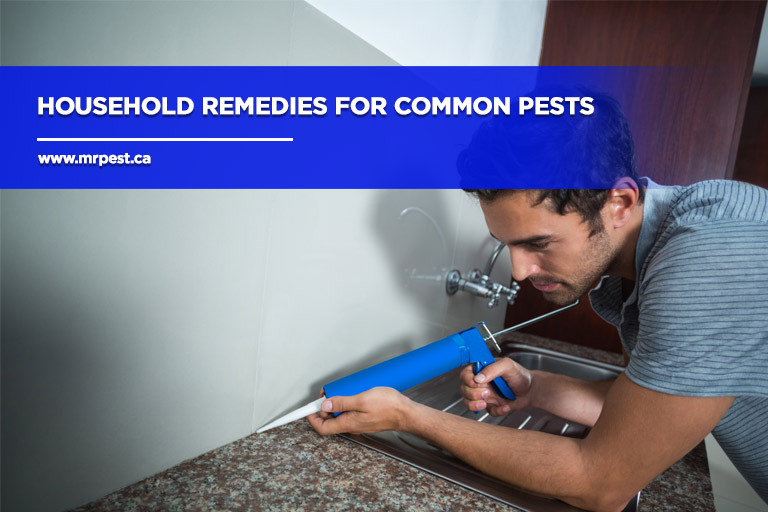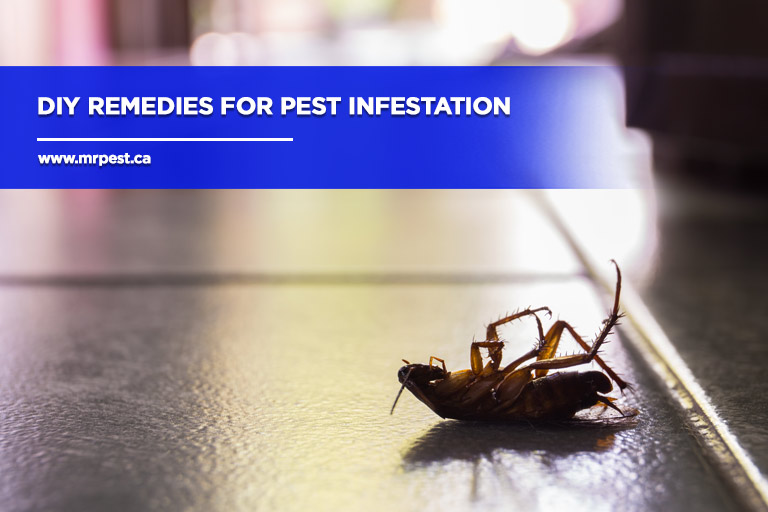Dealing with unwanted pests invading your living spaces can be a frustrating and daunting experience. Whether it’s the persistent buzzing of mosquitoes, the stealthy crawl of ants, or the unsettling presence of rodents, these intruders can disrupt your peace and compromise your comfort. But fear not, for this guide is designed to equip you with a range of effective and environmentally friendly do-it-yourself solutions to combat pest infestations. By harnessing the power of common household ingredients and natural techniques, you can regain control of your home and garden without resorting to harsh chemicals or expensive exterminators. Join us as we delve into the world of DIY pest remedies, arming you with the knowledge you need to protect your space, health, and sanity from the challenges posed by pest invasions.
5 Common Reasons for Pest Infestation
Pest infestations can occur for various reasons, and understanding these factors can help prevent and manage infestations. By addressing the root causes, you can significantly reduce the likelihood of pests taking over your living spaces. Regular maintenance, proper sanitation, and proactive measures are essential in creating an environment that’s less hospitable to pests. Here are 5 common reasons for pest infestations:
1. Food availability
The presence of accessible food sources is one of the primary reasons pests are attracted to an area. Leftover food crumbs, spills, and improperly stored food items can attract ants, cockroaches, rodents, and other pests. Keeping food tightly sealed and maintaining clean living spaces can help reduce the attraction of pests.
2. Water sources
Moisture and water availability can also lead to pest infestations. Standing water, leaky pipes, and areas with high humidity can create a hospitable environment for pests like mosquitoes, termites, and silverfish. Regularly inspecting and repairing any water-related issues can help deter pests.
3. Clutter and hiding spots
Pests thrive in cluttered environments that offer numerous hiding spots. Cardboard boxes, piles of clothes, and unused items in storage can provide shelter for pests such as spiders, rodents, and bedbugs. Decluttering and organizing spaces can make it less appealing for pests to settle in.
4. Cracks and gaps in buildings
Small openings in buildings, such as gaps around windows, doors, and foundation cracks, can provide entry points for pests. Insects like ants and termites and rodents like mice can exploit these openings to gain access indoors. Sealing such gaps and cracks can help prevent pests from entering your home.
5. Poor waste management
Inadequate waste disposal and garbage management can attract pests like flies, roaches, and rats. Trash bins that are not properly sealed or collected regularly can become breeding grounds for pests. Ensuring proper waste disposal and maintaining cleanliness around trash areas can minimize pest attraction.
Remember that prevention is key when it comes to dealing with pest infestations. Regular cleaning, proper storage of food, and routine inspections of buildings can significantly reduce the likelihood of pests invading your living or working spaces. If you have a severe pest problem, consider seeking assistance from professional pest control services to address the issue effectively.
5 DIY Remedies

While professional pest control services are available, there are several simple and effective do-it-yourself remedies you can try before resorting to more drastic measures. We’ll explore five easy DIY remedies that can help you address common pest infestations using household items and natural solutions. These methods not only provide a cost-effective approach but also empower you to take control of your living environment in a safe and environmentally friendly manner.
- Vinegar Solution for Ants
Mix equal parts of white vinegar and water in a spray bottle. Spray the solution on ant trails, entry points, and areas where they congregate. The acetic acid in vinegar disrupts their scent trails and discourages them from returning.
- Baking Soda and Sugar Bait for Cockroaches
Create a simple bait by mixing equal parts of baking soda and sugar. Place small dishes of this mixture in areas where you’ve seen cockroaches. The sugar attracts them, while the baking soda reacts with their digestive system, causing gas that is deadly to them.
- Diatomaceous Earth for Crawling Insects
Diatomaceous earth is a natural, non-toxic powder made from fossilized remains of diatoms. Sprinkle diatomaceous earth in areas where you find crawling insects like bed bugs, fleas, or silverfish. The sharp edges of the powder damage their exoskeleton, leading to dehydration and death.
- Peppermint Oil for Spiders and Mice
Spiders and mice dislike the smell of peppermint oil. Mix a few drops of peppermint oil with water in a spray bottle and spritz it in corners, cracks, and entry points. This can help deter them from entering your home. Peppermint oil not only acts as a potent repellent but also leaves your living spaces with a refreshing and pleasant aroma, creating an unwelcoming environment for spiders and mice.
- Beer Trap for Slugs and Snails
Slugs and snails are attracted to beer. Place shallow dishes or containers filled with beer in your garden, near the affected plants. The pests will be attracted to the beer, crawl in, and eventually drown. This simple yet effective method provides a natural and non-toxic way to control slugs and snails, helping to protect your garden plants without resorting to harmful chemicals.
Furthermore, it’s important to regularly inspect and maintain your living spaces to prevent potential infestations from taking hold. Taking proactive measures such as sealing cracks and crevices, maintaining proper sanitation, and storing food in airtight containers can significantly reduce the risk of pests entering your home. Remember that early intervention is key in managing pest problems, as they can escalate quickly if left unchecked.
In addition, incorporating natural deterrents like essential oils or diatomaceous earth can offer an environmentally friendly alternative to chemical pesticides. Regularly cleaning and decluttering your living areas not only minimizes potential hiding spots for pests but also enhances the overall comfort and aesthetics of your home. Engaging in outdoor maintenance, such as trimming vegetation away from the house and keeping gutters clean, further fortifies your defense against pest invasions by eliminating potential pathways. By adopting a holistic approach to pest prevention and upkeep, you can ensure a harmonious and pest-free living environment for yourself and your family.
Mr. Pest Control is always happy to help you if you need the help of dependable professionals to deal with the pests in your home. Call us at 705-739-7378 and let us manage the difficult task.



